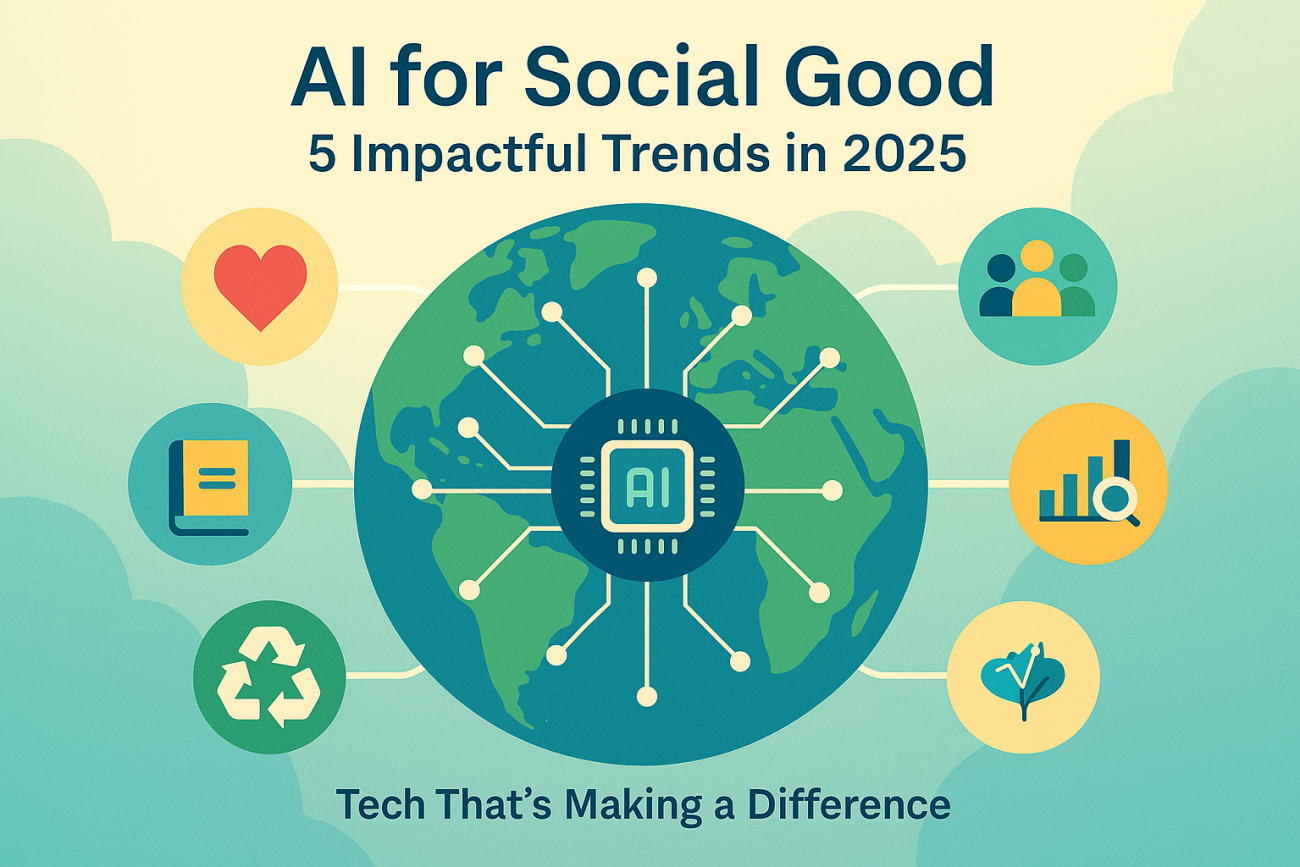5 Ways AI Is Changing Social Good in 2025
Artificial Intelligence (AI) is no longer just a buzzword—it’s actively reshaping how we tackle some of the world’s toughest social challenges. In 2025, organizations across the globe are using AI to drive meaningful impact in communities, amplify voices, and solve real human problems.
Here are five powerful ways AI is changing the landscape of social good this year:
1. Enhancing Crisis Response with Real-Time Data
From natural disasters to humanitarian crises, AI-powered tools now help organizations respond faster and more accurately. Machine learning models can analyze satellite imagery, social media feeds, and emergency call data to identify hotspots, assess damage, and allocate resources—often before human teams even arrive.
Example: The UN is using AI models to predict famine by analyzing weather patterns, crop data, and local reports, allowing earlier intervention and saving lives.
2. Boosting Healthcare Access with AI Diagnostics
AI-driven diagnostic tools are revolutionizing healthcare access in under-resourced communities. Mobile apps and remote diagnostic systems can now detect conditions like malaria, tuberculosis, or even early-stage cancers—with accuracy levels rivaling trained professionals.
Impact: AI tools are helping rural clinics diagnose diseases without needing a full lab setup, bridging the healthcare gap in remote areas.
3. Fighting Misinformation and Promoting Digital Literacy
In a world flooded with misinformation, especially during elections or health emergencies, AI is helping flag false narratives and promote credible content. Natural Language Processing (NLP) models are being used to detect hate speech, deepfakes, and propaganda in real time.
What’s cool: Some platforms now allow users to verify content on the spot using AI-powered browser extensions.
4. Enabling Inclusive Education Through Personalized Learning
AI is helping to personalize learning experiences for students with diverse needs. From language learners to neurodivergent students, adaptive learning platforms are making education more accessible and effective across the globe.
Real-world use: AI tutors in low-income areas offer personalized guidance and track student progress—even without consistent internet access.
5. Optimizing Nonprofit Operations
Nonprofits are increasingly using AI to manage donor relations, automate administrative work, and forecast funding needs. This frees up human capacity to focus on real impact and relationship-building.
Tip: Tools like ChatGPT and Notion AI can help NGOs write grant proposals, plan campaigns, or even translate documents.
Final Thoughts
AI isn’t a silver bullet—but when used ethically and intentionally, it’s a powerful tool for change. As we move deeper into 2025, the intersection of AI and social good is becoming one of the most exciting and transformative areas in tech.
Let’s build the future responsibly.
